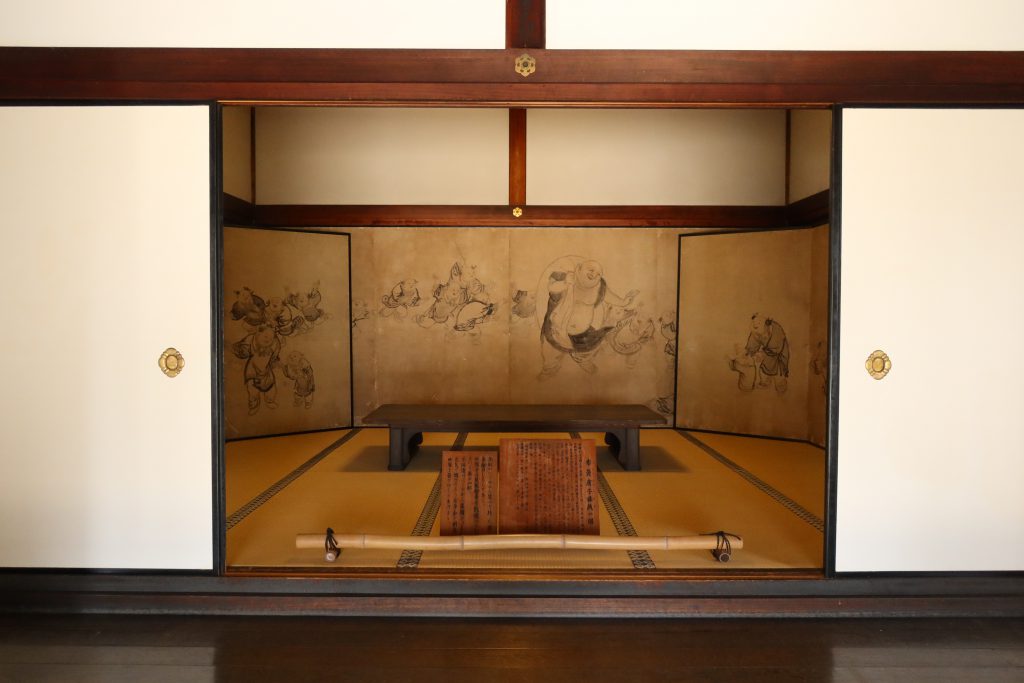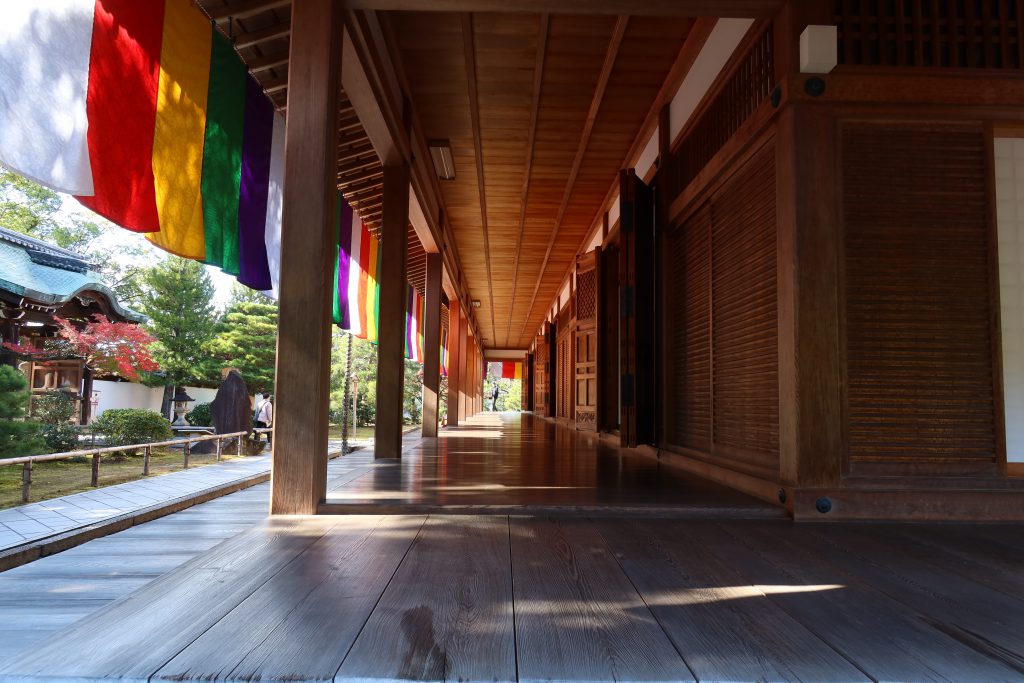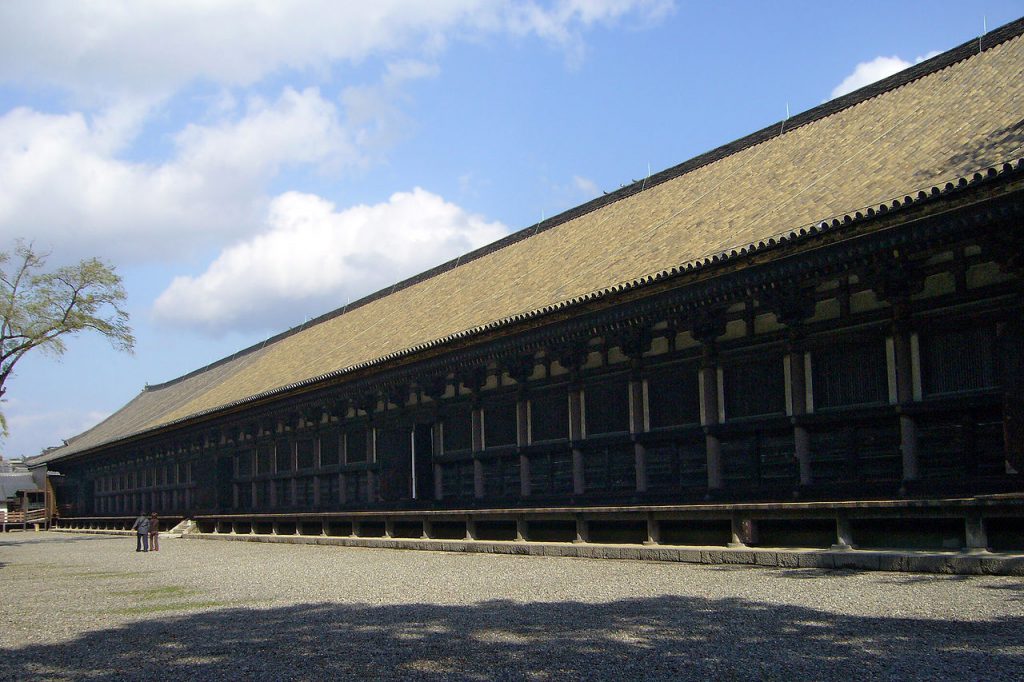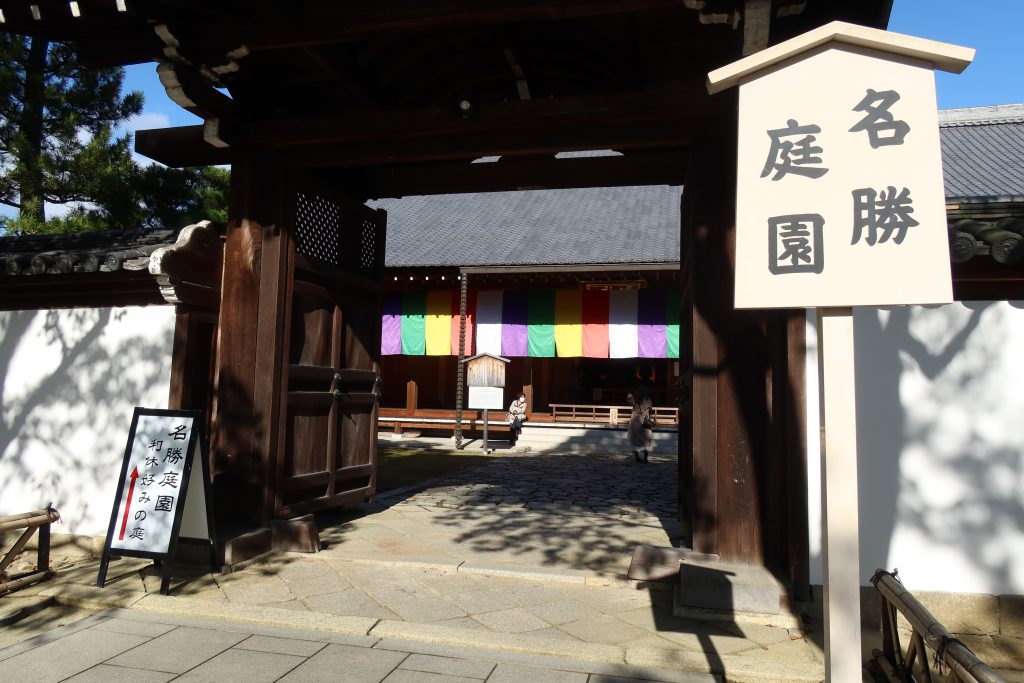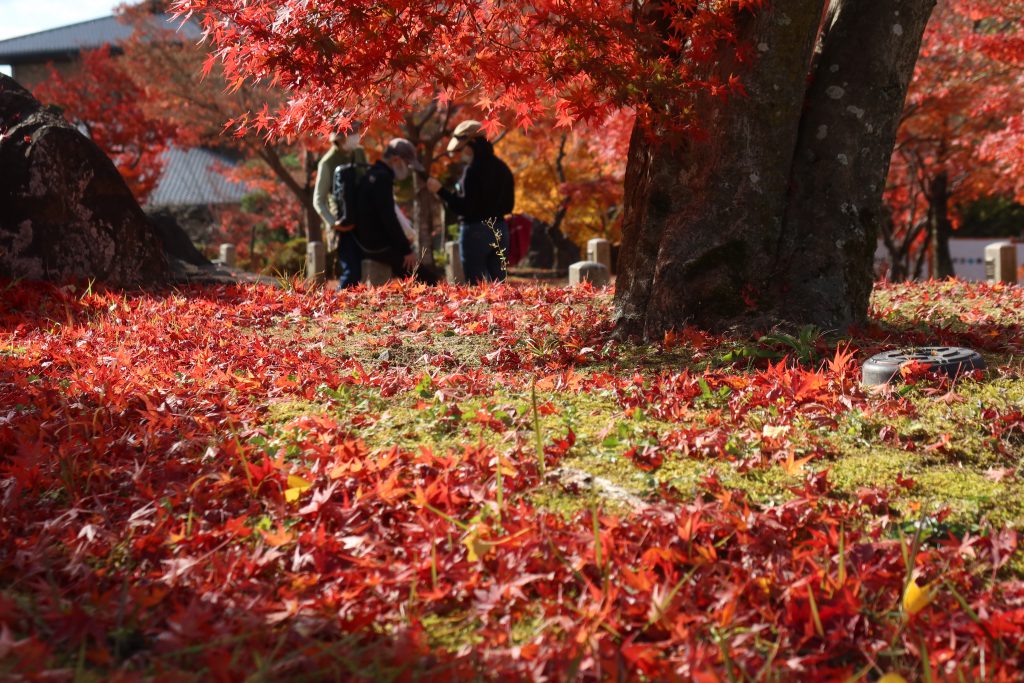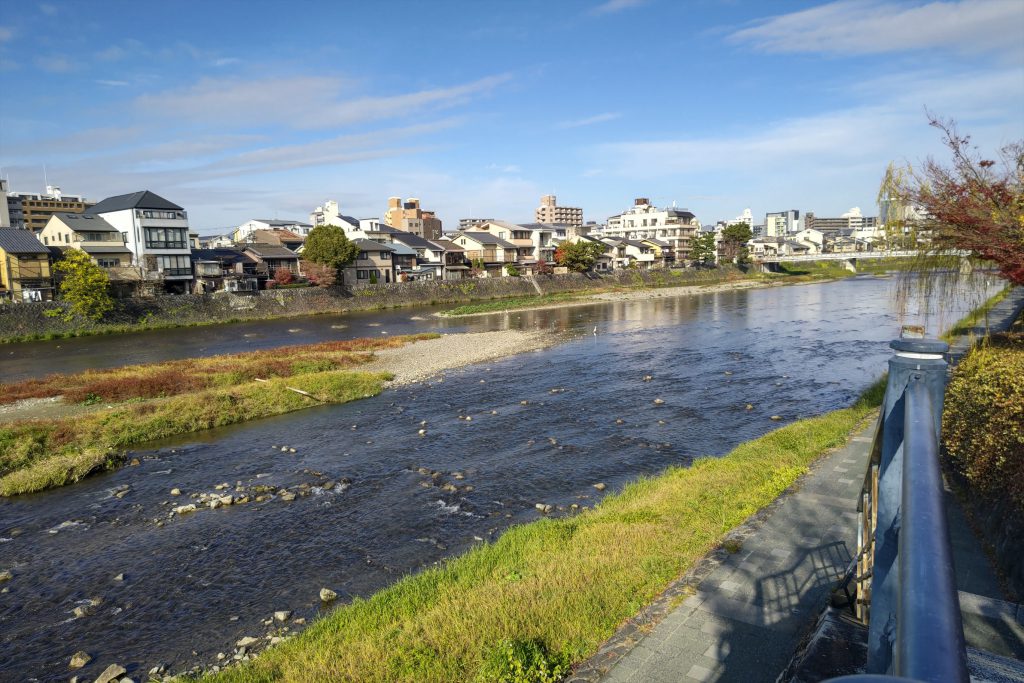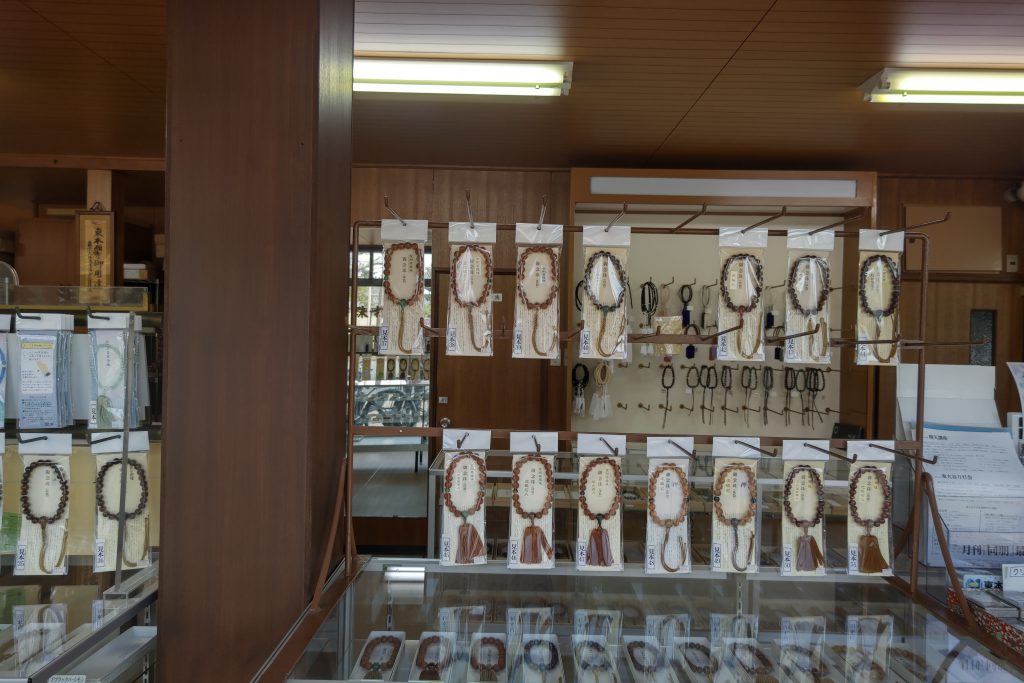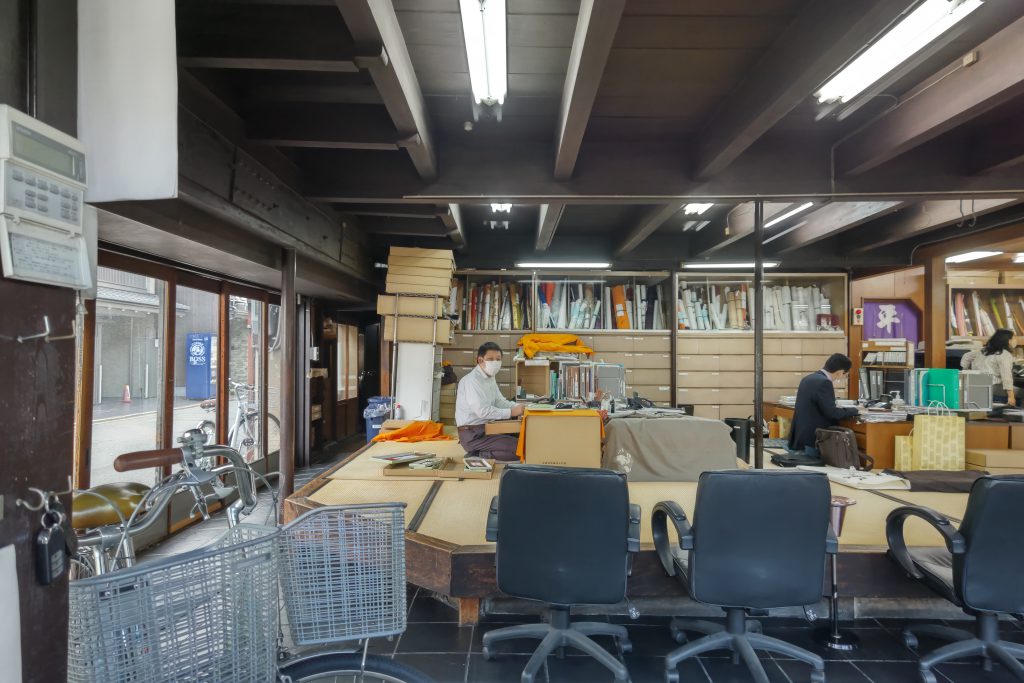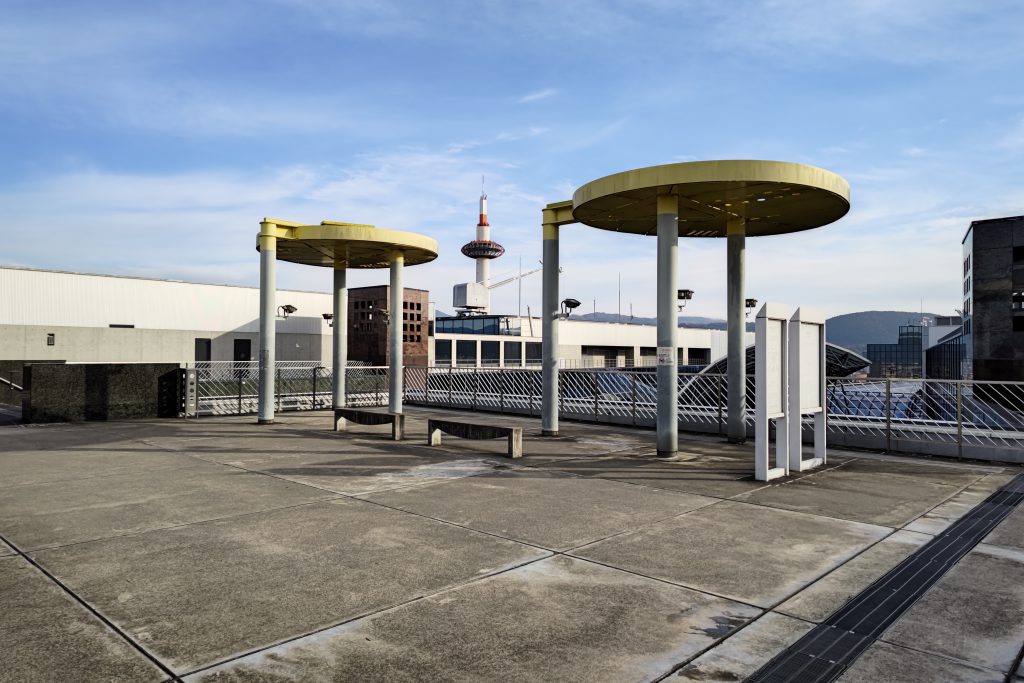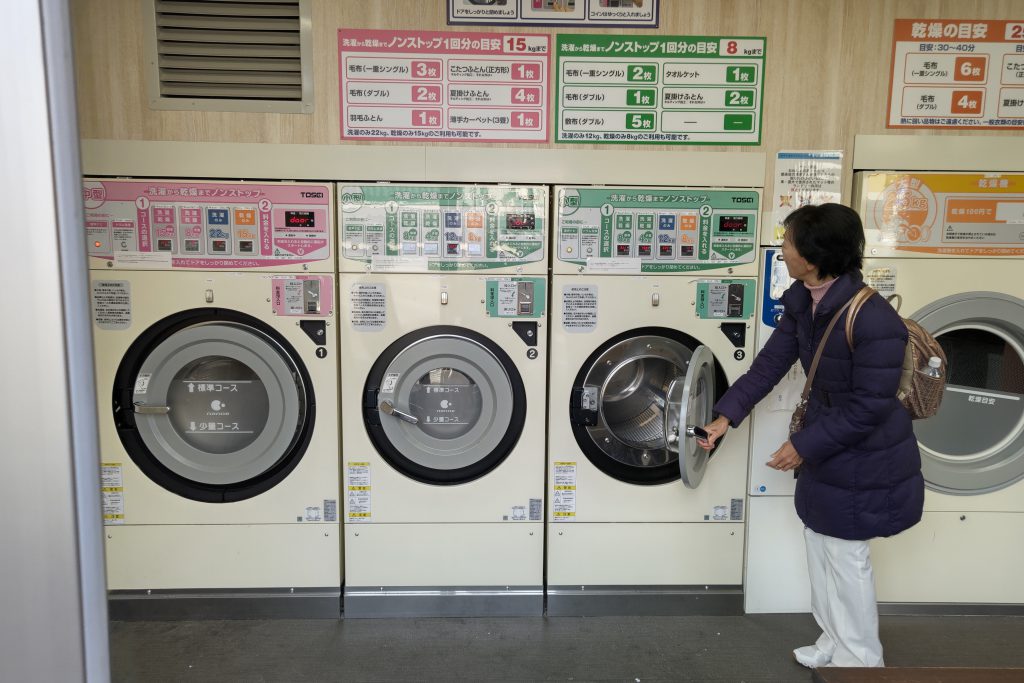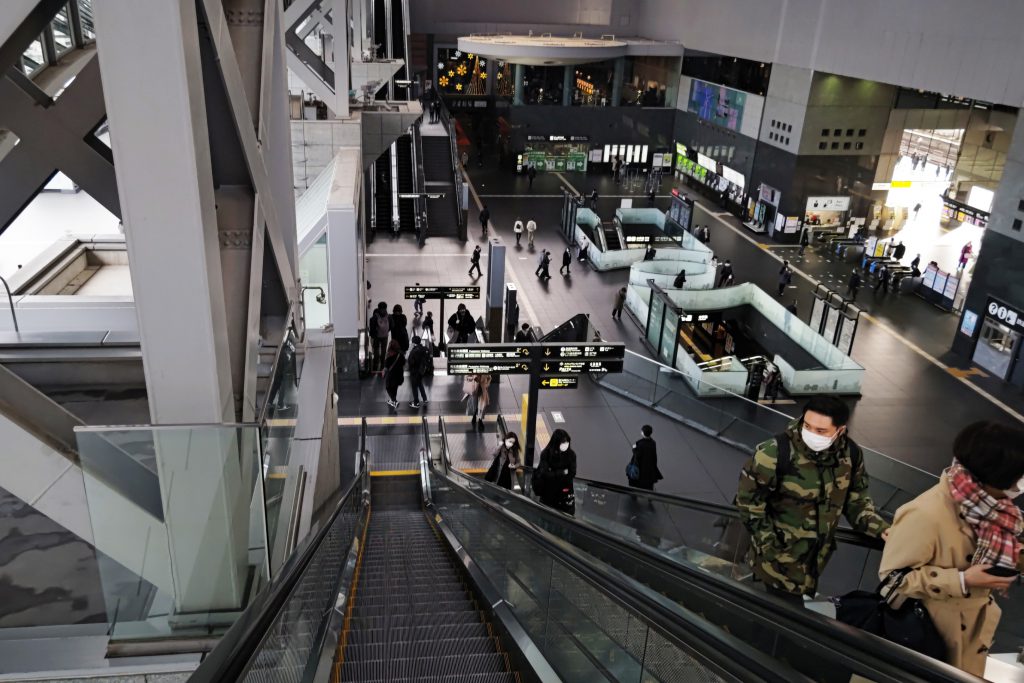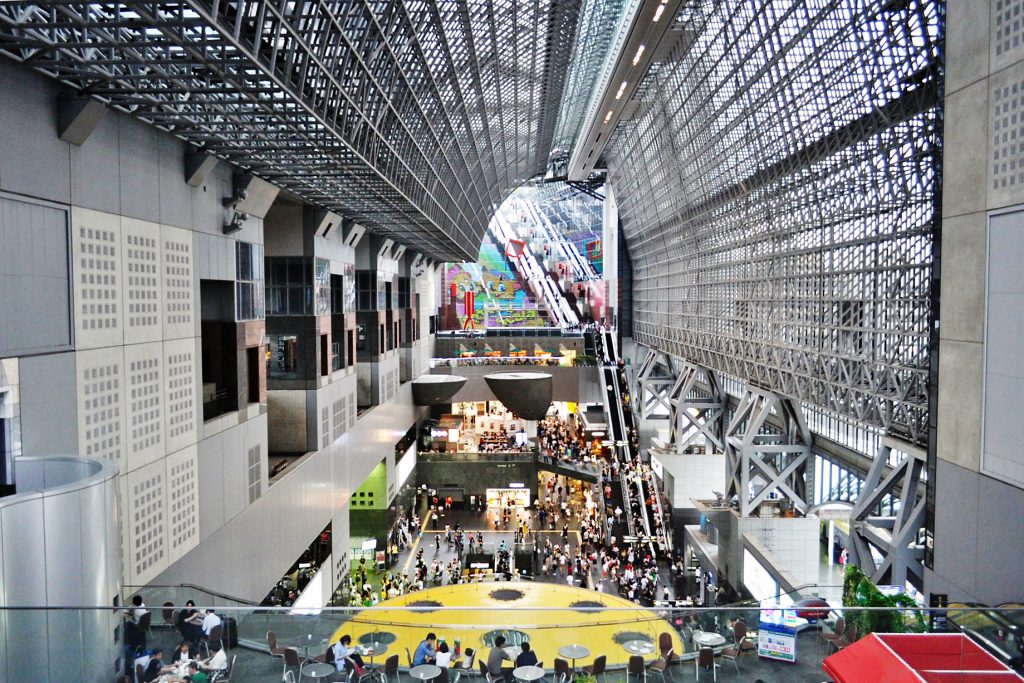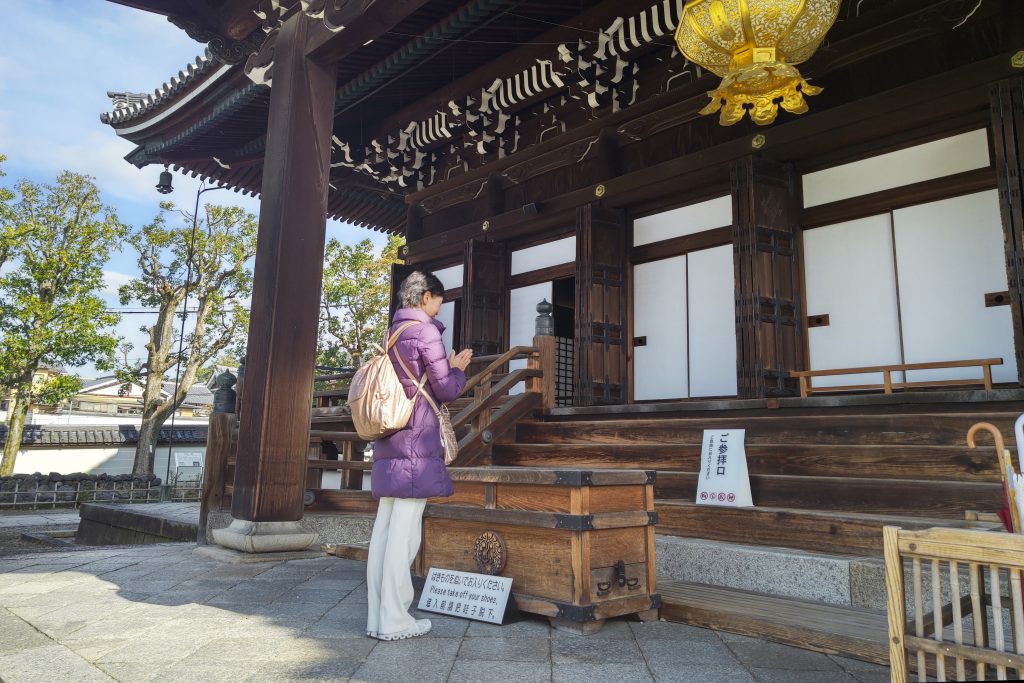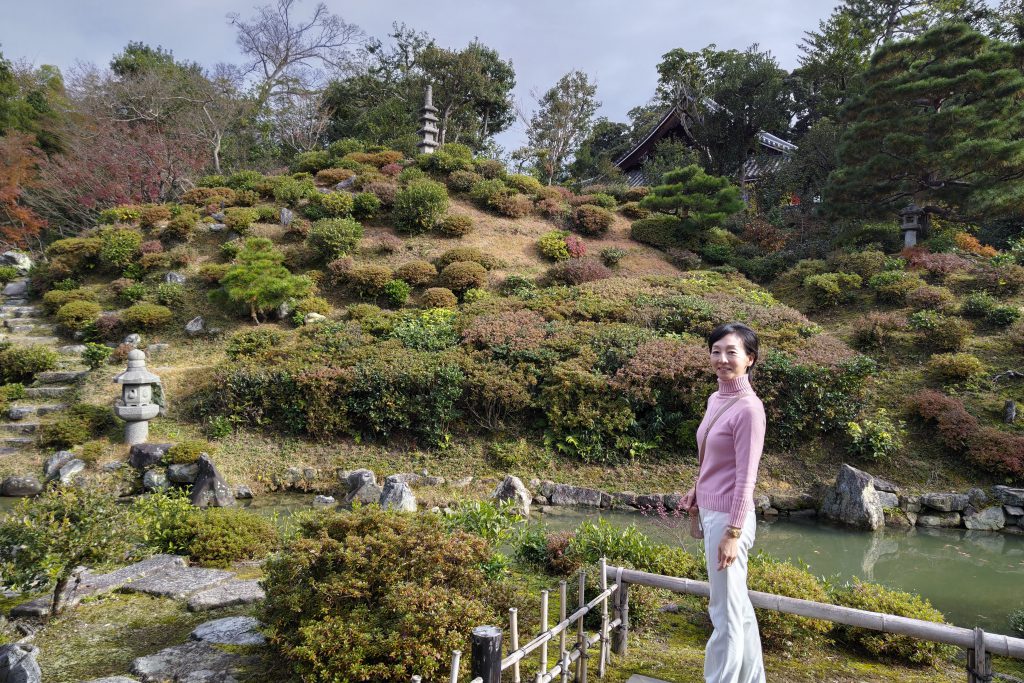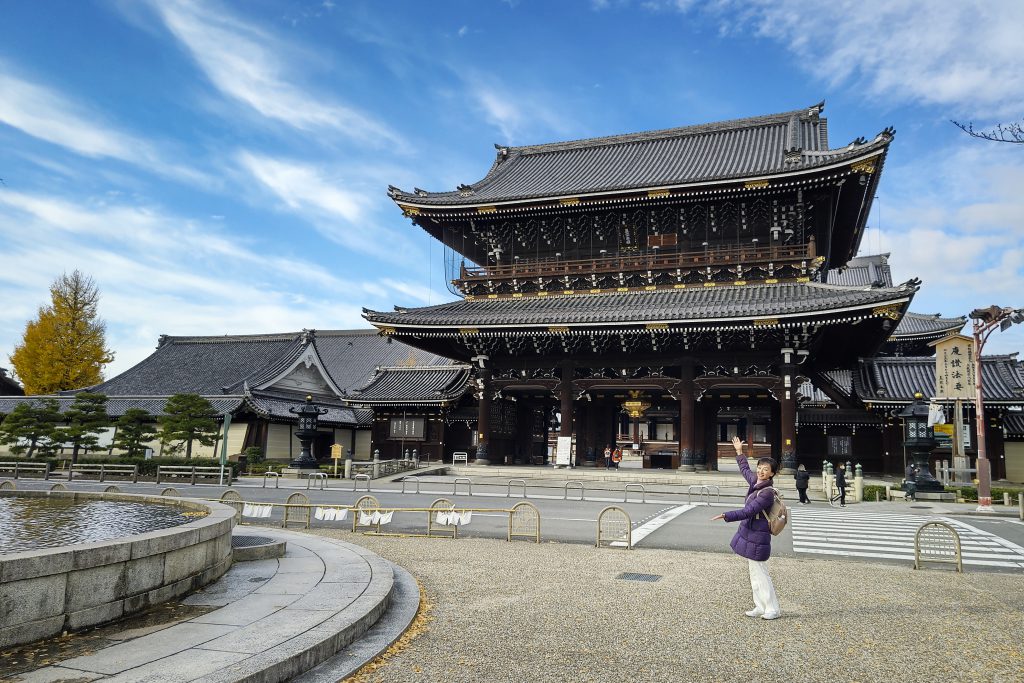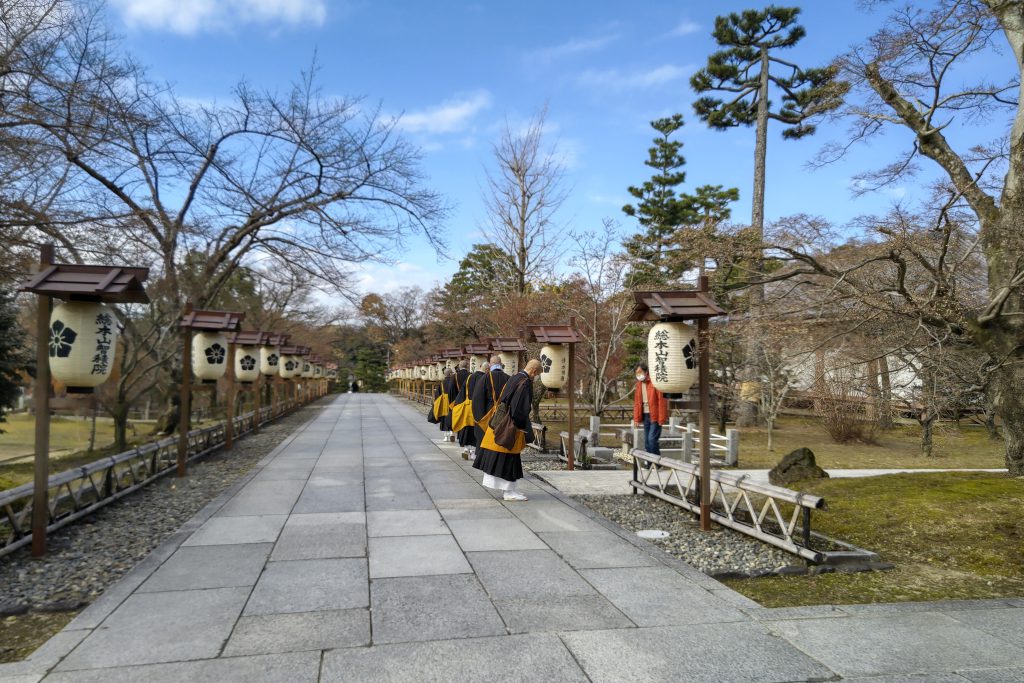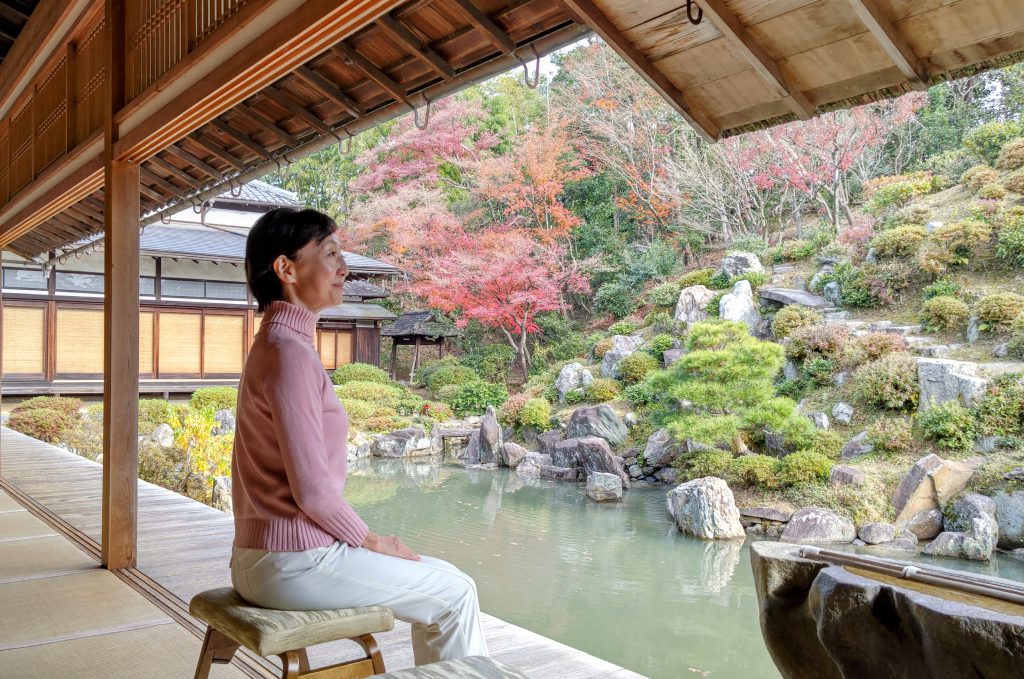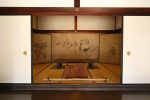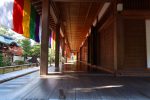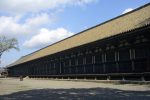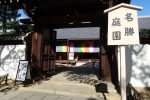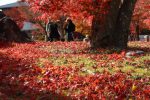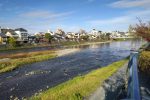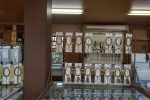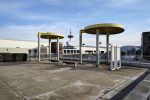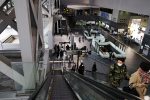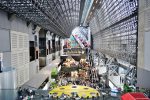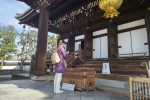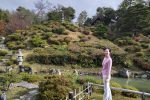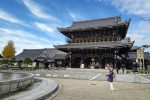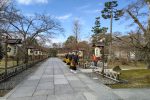Kyoto Walking Tour: Buddhism, Art and Gardens
SWS001
Visit three significant Kyoto temples: Honganji, Sanju Sangendo, and Chishaku-in to see impeccable views of the city, beautiful historic gardens, iconic statues and traditionally painted national treasures.
HIGHLIGHT
◆ View Kyoto from above at Kyoto Station’s rooftop garden
◆ Walk the grounds of Higashi Honganji, one of the head temples of the Jodo Shinshu school of Buddhism
◆ Visit Higashi Honganji Temple’s Goeido, one of the world's largest wooden buildings
◆ Be among 1,001 Buddhist statues at Sanjusangen-do Temple
◆ See Chishaku-in Temple’s gorgeous painted screens, designated as national treasures of Japan
◆ Walk along Takase River with its historic townhouses and stores to see the daily lives of the Kyoto locals
WHAT YOU CAN EXPECT
On this tour, a nationally-certified tour guide-interpreter will introduce you to the history and culture of Kyoto while guiding you around some of its most impressive spots. What’s more, as this is a small private tour, you can ask your guide any questions and let them know your interests to create a program that is right for you!
As part of this tour, you will visit the following locations:
Kyoto Station
You will first meet your guide at JR Kyoto Station, a futuristic marvel made of steel and plate glass. From there, you will head to the 15th floor, where you can enjoy excellent views of the city from a peaceful rooftop garden.
Higashi Honganji Temple
After the station, you will then head down one of Kyoto’s quieter alleys to Higashi Honganji Temple. As you walk the alley, you will be able to observe the daily lives of the Kyoto locals, all the while avoiding the crowds of the main streets.
At the end of the path, you will arrive at Higashi Honganji, one of two head temples of the Jodo Shinshu school of Buddhism, the most popular form of Buddhism in Japan. At Higashi Honganji, you will visit, among other buildings, the impressive Goeido hall, one of the largest wooden buildings in the world. Consisting of towering high ceilings and gold fittings, it is a sight to be seen.
Takase River
From Higashi Honganji, you will take a walk along the beautiful Takase River, a canal with a long history connected to Kyoto’s sake trade. Along Takase River, you can see old townhouses, stores selling traditional souvenirs, and canopies of flowers in bloom. It is especially picturesque in the cherry blossom season.
Sanjusangen-do Temple
You will then arrive at Sanjusangen-do Temple (officially called “Rengo-in Temple”). Here, you can see a large gold statue of the “thousand-armed” Kannon, the Buddhist goddess of Mercy, flanked by 1,000 human-sized replicas — a breathtaking scene, unlike anywhere else in the world.
Other impressive sights at Sanjusangen-do also include the powerful Fujin (“God of Wind”) and Raijin (“God of Thunder”) statues and the 24 guardian deities statuettes that all express different facial expressions, all statues representing the very height of Japanese Buddhist arts.
In addition, the main building of Sanjusangen-do is a National Treasure in itself. At 120-meters long from North to South, it is the longest wooden building in Kyoto, and the 33 spaces between its columns give the temple its namesake (“sanju san” meaning “33” in Japanese). Its construction style, which uses 50-meter long pillars, is also a unique sight.
Chishaku-in Temple
At Chishaku-in Temple, the last destination on this tour, you can see artworks painted by Hasegawa Tohaku and his pupils. Tohaku was one of the greatest Japanese painters of the 16th century, and the beautiful gold-leaf screens displayed here showcase the very best of his skills. Three of them, “Kaede-no-zu” (“Maples”), “Sakura-no zu” (“Cherry blossoms”), and “Matsu to Aoi no zu” (“Pine trees & Hollyhock”), are registered National Treasure.
The temple is also known for its lush strolling garden, where visitors can appreciate a beautiful green landscape atop a man-made hill. The garden is centered around a pond and some highlights include its striking azalea area, which is vibrantly colorful in mid-spring.
This tour ends at Chishaku-In Temple. Those who wish to continue onto another tour, please feel to join one of the following tours (fee required):
• Kiyomizudera Temple and Gion Area Course
• Tofukuji Temple and Fushimi Inari Grand Shrine Course
• Golden Temple and Ryoanji Temple Course
ITINERARY
- 8:15~11:45
- JR Kyoto Station Top floor Ozora Plaza → Higashi Honganji Temple → Stroll along Takase River → Sanjusangendo Temple → (Yogenin Temple) → Chizakuin Temple
- 13:15~16:45
- JR Kyoto Station Top floor Ozora Plaza → Higashi Honganji Temple → Stroll along Takase River → Sanjusangendo Temple → (Yogenin Temple) → Chizakuin Temple
- More Info
-
Yogen-in Temple
If time allows, you can also visit Yogenin Temple, which is located in front of Sanjusangen-do. At Yogenin Temple, visitors can see works of art by one of Japan’s most famous painters, Tawaraya Sotatsu. The two pieces here, “Pine Trees” and “White Elephant”, have such bold compositions and rhythmic brushwork that it is hard to believe that they were painted in the 16th and 17th centuries. They are highly valued as having a uniquely modern touch and are believed to be some of his best breakthrough works.Yogenin Temple is also famous for what is known as the “blood ceiling”, which is said to be stained with the blood of samurai warriors after a brutal defeat in the battle.
CANCELLATION POLICY
(1) 3-14 days prior to the program: 20% of the program fee
(2) 2 days prior to the program: 50% of the program fee
(3) One day before the program or on the day*: 100% of the program fee
*In the case of a no-show, a separate remittance fee will be charged.
PROGRAM FEE
- Basic Fee (Per Group)
- 0JPY
- Fee per Person
- 12,800JPY
Total Price = Basic Fee + Fee per Person * Number of Participants + Tax
- STARTING TIME
-
(1) 8:15~
(2) 13:15~
- DURATION
- 3.5 hours
- LOCATION
-
Higashi Honganji Temple
Takase River
Sanjusangendo Temple
Chizakuin Temple
- MINIMUM NUMBER OF PARTICIPANTS
- 2 persons
- INCLUSIONS
・Guided tour in English by a nationally licensed interpreter guide
・Admission fees (Rengeoin Temple and Chishakuin Temple)
- EXCLUSIONS
・Transportation to the meeting place
・Food, beverages, and other items not listed in the inclusions
- NOTIFICATIONS
◆ This is a shared program. Multiple groups may take this program at once.
◆ Please follow the instructions of the guide during the program. We will not be responsible for any accidents that may occur due to disobedience of the guide's instructions.
◆ The program will be operated in accordance with the guidelines stipulated by the Japan Tourism Agency. As a measure against COVID-19, you will be asked to disinfect your hands and wear a mask, and we will measure your temperature before starting the experience.
◆ Walking tours may be subject to change due to facility closures or weather conditions. In such cases, we will guide you to alternative locations.
◆ The program duration stated is only approximate. Please note that the duration of the experience may vary depending on the situation and the number of guests.
◆ For walking tours, you are requested to meet our guide at a designated meeting place. If you are late, please contact us at 03-6432-0195 during business hours (weekdays from 9:00 to 18:00). We may also provide you with an additional telephone number to contact in advance of the program.
◆ If you require special assistance during the program due to any of the following: religious reasons, physical conditions, illness, allergies, or the age of children, please be sure to indicate this in the remarks section of the reservation form at the time of application. Please note that we cannot guarantee any arrangements or changes to the program without prior inquiry.
◆ The minimum number of participants for this program is 2.
◆This program is typically held in English. However, languages other than English can also be supported. Please inquire at info@truejapantours.com for details. If the program is available in your language, an additional fee of 1,000 yen (tax not included) per person will be added to the listed fee.
◆ Our business hours are from 9:00 to 18:00 on weekdays. Please note that inquiries received outside of business hours will be handled on the next business day. The application deadline for this program is 10:00 a.m. (Japan Standard Time) five business days prior to the tour date. If you wish to apply after the deadline, please contact us at info@truejapantours.com
◆ Please note that we cannot guarantee arrangements for programs purchased after the application deadline without prior inquiry.
Stocker
BOOKMARKS
- Not available.


